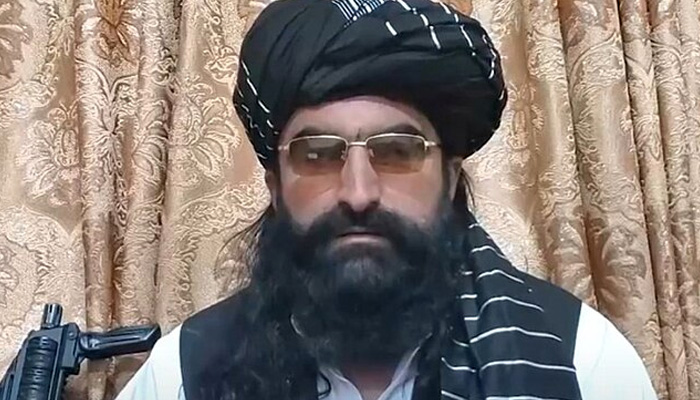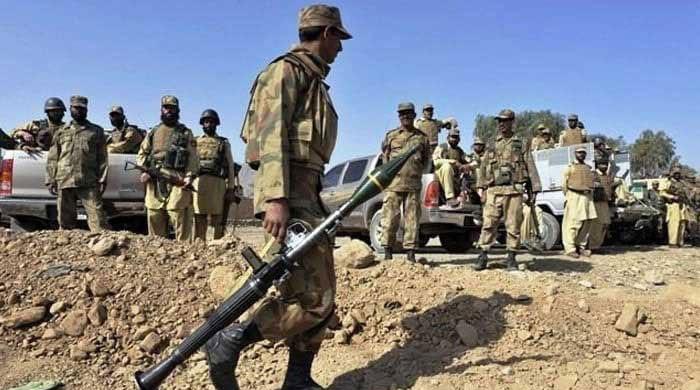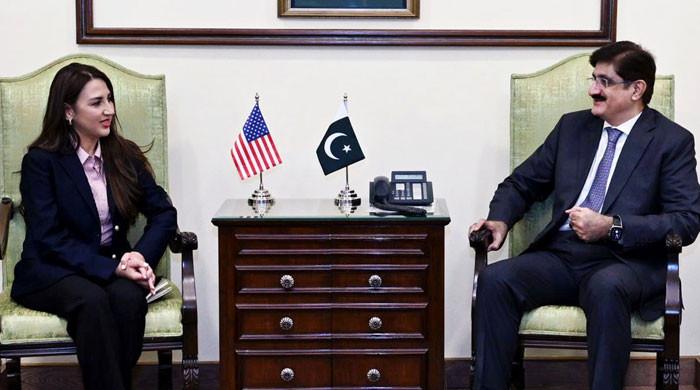TTP chief Noor Wali Mehsud's leaked call exposes vicious terror plots in Pakistan
Development cements Islamabad's stance that Afghan soil is being used to carry out terrorist attacks in Pakistan
July 19, 2024

- TTP chief gives directives to inflame security situation in Pakistan.
- Tells his local commanders to bomb government schools, hospitals.
- Instructs his lieutenants to keep conversation totally confidential.
ISLAMABAD: The outlawed Tehreek-e-Taliban Pakistan (TTP) is hell-bent on plunging the country into chaos, with plans to set off a security nightmare by bombing educational institutions, healthcare facilities, and the homes of military and police officers.
These disturbing terror plans were revealed after a phone call by Noor Wali Mehsud, the head of the banned TTP, giving instructions to his henchmen for attacks in Pakistan, came to surface, according to security sources.
This development cements Islamabad's stance that Afghan soil is being used to carry out terrorist attacks in Pakistan. Numerous TTP leaders, including Noor Wali, are reportedly holed up in regions of Afghanistan bordering Pakistan and are pulling the strings of local terror networks responsible for most of the attacks in Pakistan.
The other voices in the audio call have been identified as local commanders Ahmad Hussain Mehsud alias Ghat Haji, and Saqib Gandapur.
The call revolves around Noor’s directives on how to inflame the security situation in the country. In that conversation, he can be heard outlining two main methods for disrupting peace and order in Pakistan.
Suggesting that one method is to target government schools or hospitals with bombings, the TTP leader orders his men to carry out attacks on one or two schools or hospitals without claiming responsibility for them.
The TTP chief also hashes out a second method, which he says involves destroying the homes of police officers and soldiers.
In the call, Noor Wali instructs his lieutenants to keep the conversation confidential and ensure that no one else is aware of the plan and stresses that if questioned, he should not be linked to the operations and nothing should be traced back to TTP.
Ahmad Hussain, while affirming the TTP chief’s deadly plans, can be heard telling Gandapur to target the homes of high-ranking police, army, and FC officials with bombs and to either close down or blow up schools secretly — without taking credit for the attacks.
Bannu terror attack
In the most recent terror attack, at least eight soldiers of the Pakistan Army embraced martyrdom as forces neutralised 10 militants who attempted to breach Bannu Cantonment in a vehicle loaded with explosives, according to the Inter-Services Public Relations (ISPR).
The terrorists attacked the Bannu Cantonment in the early hours of July 15 but their attempt to enter the facility was effectively thwarted by the security forces personnel, resultantly the militants rammed an explosive-laden vehicle into the perimeter wall of the cantonment, the military’s media wing had said.
After delivering a strong demarche to Afghan ambassador, the Foreign Office on Wednesday said the terrorist attack was carried out by the Hafiz Gul Bahadur group based in Afghanistan. The militant group along with TTP, is responsible for the deaths of hundreds of civilians and law enforcement officials in multiple terrorist attacks inside Pakistan, the statement added.
Islamabad has urged Kabul to “fully investigate and take immediate, robust and effective action against the perpetrators of the Bannu attack and to prevent the recurrence of such attacks against Pakistan using the territory of Afghanistan”.
Pakistan reiterated its serious concerns over the presence of terror outfits inside Afghanistan that continue to threaten Pakistan's security. "Such incidents also go against the spirit of bilateral relations between the two brotherly countries," it read.
Operation Azm-e-Istehkam
Last month, the government approved the launching of operation Azm-e-Istehkam, a renewed national anti-terror drive, in light of the surge in terrorist attacks in the country in recent months.
The country, during the second quarter of 2024 witnessed 380 violence-linked fatalities and 220 injuries among civilians, security personnel, and outlaws, resulting from as many as 240 incidents of terror attacks and counter-terror operations, said a Security Studies (CRSS) Annual Security report.
This includes 236 fatalities among civilians and security forces personnel, the report said.
Khyber Pakhtunkhwa (KP) and Balochistan provinces – both bordering Afghanistan, were the epicentres of violence, accounting for nearly 92% of all fatalities and 87% of attacks (including incidents of terrorism and security forces operations) during this period.
Individually, the former suffered 67% and the latter 25% of all fatalities in Q2, 2024.











